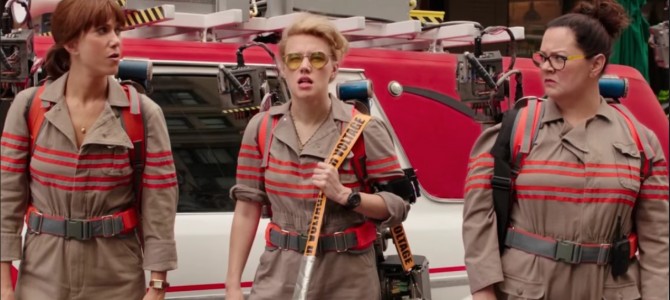Over the weekend, I did something I hadn’t done in a while and tuned into Saturday Night Live. Dave Chappelle and A Tribe Called Quest were great; however, first I had to survive last Saturday’s now-infamous cold open: SNL’s Kate McKinnon put on her Hillary Clinton pantsuit and sat down at the piano and banged out a mawkish version of Leonard Cohen’s “Hallelujah.” At the end of this interminable exercise in self-soothing, McKinnon turned to the camera and said, “I’m not giving up, and neither should you.” SNL’s post-9/11 episode wasn’t this somber. Mother Jones actually tweeted out the link to the YouTube video the next day and said it would make viewers “sob.”
I wept, all right — for Leonard Cohen. The unofficial troubadour for the IDF was an amazing songwriter. His death last week really deserved better than this. Already, “Hallelujah” had regrettably been reduced to the song most people knew from That Very Special Episode Of The West Wing or the song that we heard when Marissa died on The O.C.
But right on the heels of Cohen’s literal death, using his best-known song to eulogize Hillary Clinton’s craven career was really something. To recap: A SNL comic dressed up as Hillary Clinton sang the words, “I did my best, it wasn’t much / I couldn’t feel, so I tried to touch / I’ve told the truth, I didn’t come to fool you / And even though it all went wrong / I’ll stand before the Lord of Song”—and it was in no way intended to be a joke.
Then again, McKinnon—who I actually think is a big bright spot in an otherwise dreary SNL cast—hasn’t exactly been generating a lot of mirth this year. Shortly after McKinnon hit her last mournful note, I realized the last time I had seen her was in the trailer for Ghostbusters earlier this year. Then it hit me: the failure of the now legendarily disastrous Ghostbusters remake portended the disastrous result of Clinton’s own election bid.
When I first saw the trailer for Ghostbusters, my initial reaction was disappointment. At the time, I had no idea there was a raging online controversy. Like every American male my age, I can quote the original Ghostbusters with an alacrity reserved only for Caddyshack and the first 10 seasons of The Simpsons. I was actually looking forward to a new movie irrespective of the female cast, as I’ve enjoyed the work of director Paul Feig, Kristen Wiig, Melissa McCarthy, and yes, McKinnon. But every joke in the trailer seemed to fall flat, and Leslie Jones’ decision to not just chew the scenery, but to then regurgitate it into viewers’ laps, was instantly off-putting.
I was not alone in my opinion, apparently. It became the most-disliked movie trailer in YouTube history. I don’t think it was objectively that bad; it just generated strong reactions because, pace McKinnon’s Cohen tribute, it despoiled the memory of the much better and already beloved source material.
Did the team behind the Ghostbusters remake try to address fans’ concerns with the movie? Did they ignore the online trolls, confident that they’d made a movie that, even if it wasn’t well-received, they could be proud enough of to cash their million-dollar paychecks and move on to the next film?
Well, no. The drones at the social justice hot take factory started pulling extra shifts and calling any criticism of the movie sexist. Soon, the cast of Ghostbusters got high on their own outrage supply. They gave an interview with the New York Times with the hammer-meet-coffin-nail headline, “Who’s Afraid of An All Female Ghostbusters?” In May, the cast appeared on Ellen with… Hillary Clinton, and by then the juxtaposition was painfully obvious. (To quote PCU, a genuinely underappreciated comedy about the dangers of political correctness, “This is my thesis man! This is my closing argument! I CAN STOP WATCHING TV!”) And if it weren’t clear where the cast stood, a few weeks after the movie’s release in July the film’s Twitter account actually issued an endorsement of Hillary Clinton:
Apparently the Ghostbusters account deleted this tweet. pic.twitter.com/QeHBbiDR2d
— Sonny Bunch (@SonnyBunch) July 28, 2016
Suffice to say, studio executives were dissapproving of the bold new promotional strategy of attracting only sufficiently woke, i.e. not Republican, viewers. Unsurprisingly, Ghostbusters turned into the biggest flop since Dick Fosbury.
Surveying the smoldering wreckage of the Democratic Party from last week, it’s pretty hard not to draw some parallels here between the failures at the box office and ballot box. The first is that gender solidarity is an extremely poor strategy when you’re selling a product that cost a huge team of people north of nine figures to make and depends on being broadly popular to succeed.
Yet Clinton doubled down on this strategy this year. I say “doubled down,” because Clinton tried to deal the woman card unsuccessfully in 2008 as well. (Regarding her famous stump speech line—“If fighting for women’s health care and paid family leave and equal pay is playing the woman card, then deal me in”—I kept waiting for, say, Annie Duke to quietly pull her aside and explain to her that it’s hard to play a card before it’s been dealt.)
Recall that no less than Gloria Steinem rode to Hilldawg’s defense with an op-ed declaring that the former first lady and current New York senator was being unfairly treated relative to Obama because “Gender is probably the most restricting force in American life, whether the question is who must be in the kitchen or who could be in the White House.”
Set aside the question of whether you’d rather be Obama in pre-Fourteenth Amendment America or Hillary in pre-Nineteenth. Let’s be generous and assume feminists are motivated by the notion that women deserve equality of opportunity rather than deferential treatment. Given how he beat her like a drum in 2008 despite her enormous institutional advantages, Obama was a much better candidate. And when Obama famously burned Clinton by saying, “You’re likable enough,” it was devastating precisely because we all knew she wasn’t as likable as Obama.
Of course, Clinton carried that chip on her shoulder through this election—and we can safely say that it wasn’t just Steinem putting words in her mouth about her apparent belief that women have it uniquely bad. Earlier this year, Clinton told the New York Times’ Mark Leibovich “gay rights has moved much faster than women’s rights or civil rights, which is an interesting phenomenon somebody in the future will unpack.” Of course, we know this only because it was in a WikiLeaks email where Leibovich asked the campaign what quotes from an upcoming profile it wanted him to nix.
Despite the media’s extraordinary efforts to drag Clinton over the finish line, voters—and notably female voters—weren’t impressed. A majority of white women voted against her, which, in the words of another writer also published in the New York Times, is proof “white women will pawn their humanity for the safety of white supremacy.” Not that they’ll care much about my opinion as white male, but I humbly suggest my friends on the left refine that argument a bit before the next election.
Anyway, this brings us to a second observation: Whether you are a former secretary of State or an actress successful enough to be starring in one of Hollywood’s most eagerly anticipated summer tentpoles, blaming sexism for career setbacks, fairly or not, doesn’t make you terribly sympathetic when you’ve already experienced more success than 99.9 percent of the rest of America.
Finally, both Ghostbusters and Clinton did not benefit from trying to present themselves as making a feminist statement when they were simultaneously following a path previously trod by men. In the case of Ghostbusters, a cast of enormously talented and funny women had to measure up to roles defined by iconic comics who happened to be men. Making a new Ghostbusters would be a tough act for anyone to follow, regardless of the sex of the cast.
With Clinton, feminists seemed to be arguing that, yes, America can elect a woman, provided she’s married to a former president. I’m sorry, this is not a dig on Clinton’s intelligence or capabilities relative to her husband, but it’s hard to argue that her husband isn’t a much more capable a politician with the skillset required to run for office and get elected.
Anyway, I fully expect to see a female president, and may the be best woman win. It will be nice to see a commander-in-chief who is her own woman, and wasn’t so nakedly ambitious she drafted behind her more talented hubby, going so far as to enable his own predatory behavior toward women while hypocritically decrying her opponent’s own admittedly boorish behavior toward women.
But the comparisons end there. Feig, Wiig, McCarthy, McKinnon, Jones and most everyone else involved with the Ghostbusters remake will likely have many future successes. I wish them the best, even if I did a lot of eye rolling during their needlessly pitched defense of the Ghostbusters remake. Escapist entertainment doesn’t have a hold on my life. But after 25 years of endless scandal — that is, the majority of my life — I have only one thing to say to Kate McKinnon and the rest of those blinkered enough to be bothered by the fact we won’t be subject to Hillary Clinton’s complicated webs of lies and avarice anymore: Halle-frickin’-lujah.









